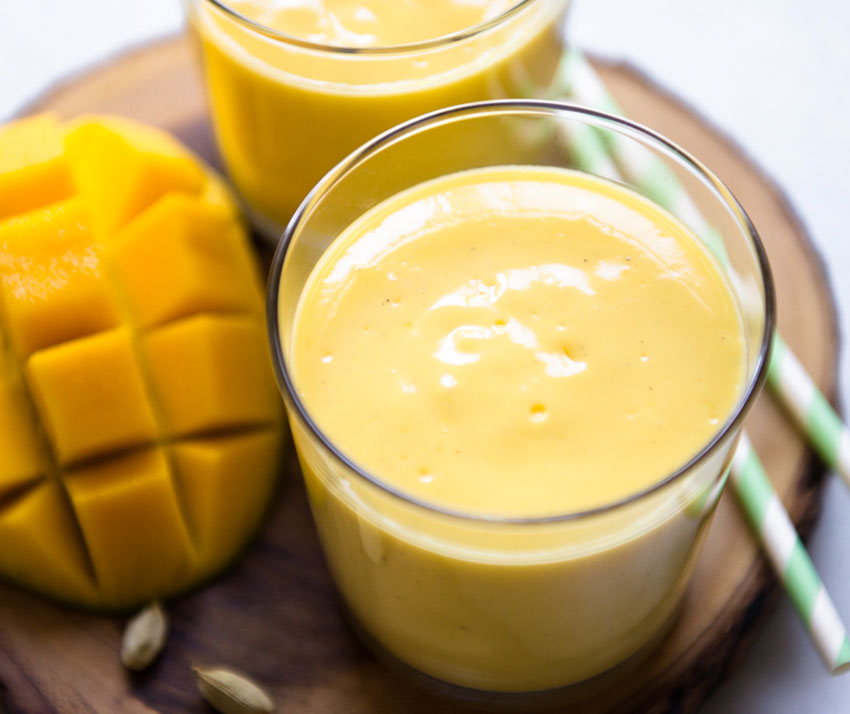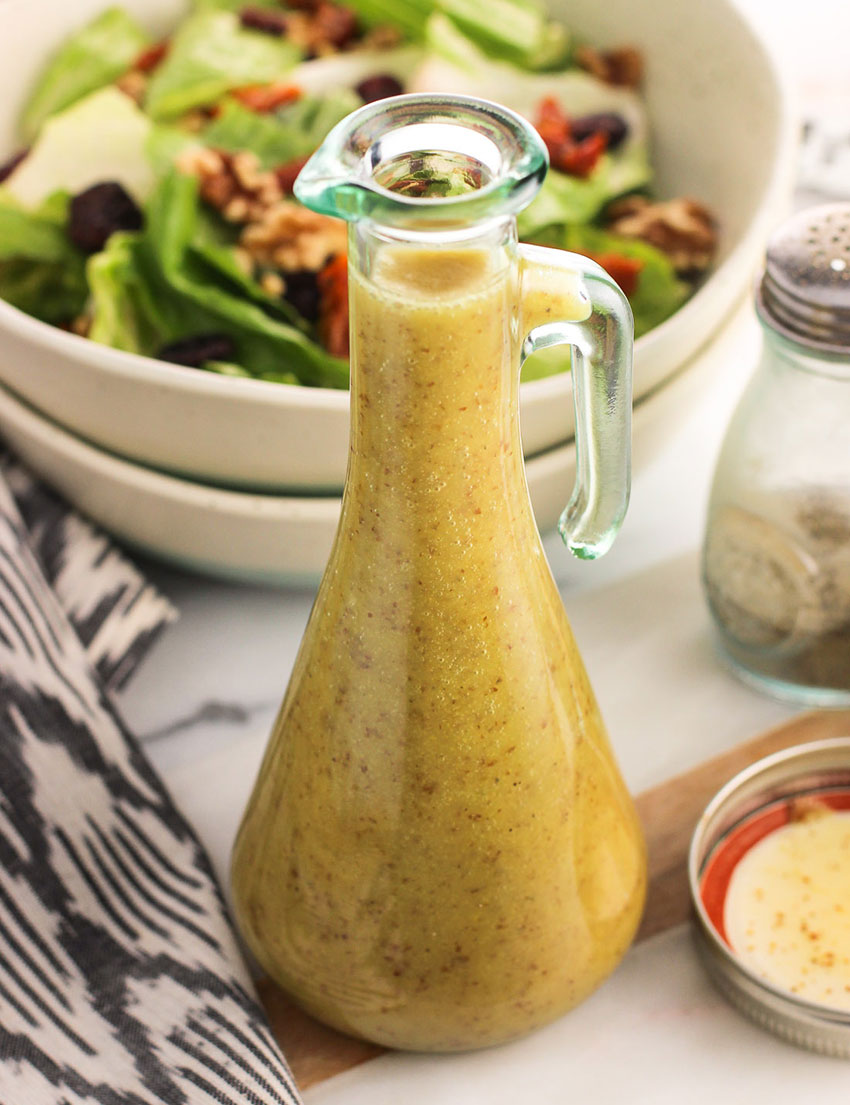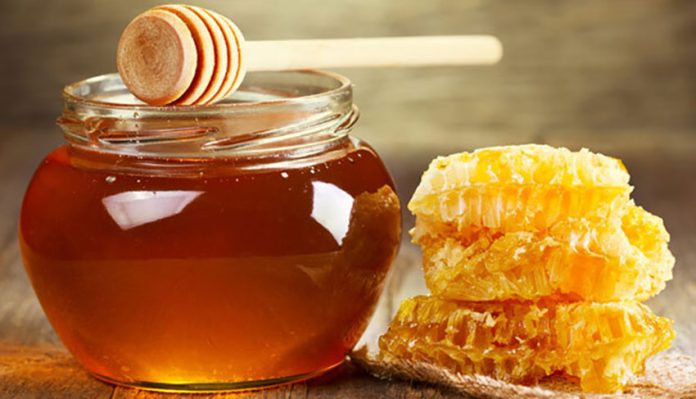Have you watched the Netflix series Rotten? Each episode explores one type of food — garlic, chicken, milk — and its worldwide production. It’s alarming and upsetting, to say the least, and should confirm for you (as it did for me) the need to eat as local and direct-from-the-farmer as possible.
While the tone of the series is one of exaggerated alarm (like the title, which I hate) the information is solid. The episode about honey especially struck home, as I’d assumed, for example, that those guys in the tianguis and Walmart parking lots selling big slabs of honeycomb and honey out of big white buckets were legit. The price was always unbelievably cheap and I just thought it was another wonderful thing about living in Mexico.
Unfortunately, the truth is more likely that it’s corn syrup with a tiny bit of real honey mixed in. Why do I say that? Many conversations with the apiarist at the organic farmers’ market in Mazatlán made clear to me why honey is such a valuable commodity nowadays, even in Mexico.
And the big picture is that with more and more people wanting to “eat healthy” and avoid sugar and bee populations dying due to mono-farming, pesticides and disease, the honey supply can’t meet the demand. Countries like China — the world’s biggest producer of honey — with less strict food-labeling regulations are glutting the market with honey that’s adulterated in so many ways that it’s hard to detect. Watch the series. It’s eye-opening.
Even the Mexican Association of Honey Exporters reported that “The consumer is usually unable to tell the difference between real and fake honey, since the texture and makeup of the two are quite similar. While the crudest form of adulteration, with sugar or corn syrup, is slightly detectable, other falsifications, made with syrups from beets, rice or potatoes — usually originating in China, Vietnam or India — are more difficult to notice.”

“Instead of consuming a beneficial product,” the report concluded, “they are negatively affecting their health because of the types of sugars the honey is adulterated with.”
I feel like I’m always harping about eating local, knowing your farmer, etc. But the truth is we expect the food we buy to be what it says it is, and we should care about what we eat. Yes, often “real” food will cost more than the processed, commercially produced version — but you get what you pay for. In this case, pure, raw, unadulterated, uncooked and unfiltered honey contains all of the healthy natural components you’re buying it for to begin with.
Cooking and filtering honey, for instance, removes all the beneficial pollens that should naturally be present. So do find a local beekeeper or buy direct from a farmer or natural foods store where you can be sure of the source.
The basic rule of thumb is the darker the honey, the more intense the flavor, which you’ll discover as you start tasting different varieties. Honey is a fun ingredient to play around with in basting and barbecue sauces and salad dressings. And it can be easily whipped or blended into cream cheese, softened butter or requesón, with herbs, minced nuts or dried fruit.
In the case of butter, make more than you need, roll into a log, wrap and freeze. Then just cut off small portions as needed.
Honey Mango Lassi
- 3 cups mango, cubed
- 1½ cups plain yogurt
- 1½ cups regular, almond or coconut milk
- 1/3 cup honey
In a blender, combine mangoes, yogurt and milk. Add honey and pulse until just combined. If you like, add an ice cube or two and blend again. Serve cold.
Honey Cucumber Salad
English cucumbers are slightly sweeter than “regular” cukes, and sold wrapped in plastic due to their thinner skin, which doesn’t have to be peeled.
- 3 medium English cucumbers, thinly sliced
- ¼ cup honey
- ½ cup white wine vinegar
- 1-2 Tbsp. water
- ½ red onion, slivered
- 1 Tbsp. fresh dill, minced
- Salt and pepper to taste
Place cucumbers in bowl, sprinkle with salt, toss and set aside. In another small bowl, mix honey, vinegar, water and red onions. Pour mixture over cucumbers and toss. Marinate in refrigerator about 1 hour before serving.

Hot ‘n’ Sweet Broccoli
You’ll want to use this easy, delicious sauce on chicken, shrimp and other veggies too.
- 1 large shallot
- 1-inch piece fresh ginger, minced or grated
- ¼ cup honey
- 2 Tbsp. soy sauce
- ½-1 tsp. crushed red pepper flakes
- 2-3 Tbsp. water
- ½ lb. broccoli, trimmed
- 2 tsp. olive oil
- 2 tsp sesame oil
Cut broccoli into bite-size florets; cut sugar snap peas diagonally into bite-size pieces. Heat oil over low heat in large skillet; add water, honey, soy sauce, ginger and red pepper and stir gently to combine. Turn heat to medium and continue stirring for 3 minutes till sauce begins to thicken. Add broccoli, stir to coat, then cover and cook a few minutes until tender-crisp. Uncover and let sauce cook 1-2 minutes more. Serve immediately over rice or noodles.
Honey-Roasted Cherry Tomatoes
Serve atop pasta or rice, or for breakfast, piled on toast with some crumbled queso fresco.
- 1 lb. cherry tomatoes
- 2-4 garlic cloves
- 1 Tbsp. honey
- 3 Tbsp. olive oil
- Salt and freshly ground black pepper
Preheat oven to 375° F. Lightly oil a cookie sheet or roasting pan. Halve the tomatoes and place them cut side up in the pan, fitting them snugly with little or no space between them. Crush or mince the garlic with a pinch of salt, then beat it with the honey, olive oil and a good grinding of pepper. Spoon this sticky, garlicky mixture over the cherry tomatoes. Roast for about 30 minutes, until golden, juicy and bubbling.
Classic Honey-Mustard Salad Dressing
- Honey
- Dijon mustard
- Apple cider vinegar
- Olive oil
- Salt & pepper
Using equal amounts of each ingredient, shake in a jar or whisk in a small bowl. Add salt and pepper to taste. Store in refrigerator.
Janet Blaser has been a writer, editor and storyteller her entire life and feels fortunate to be able to write about great food, amazing places, fascinating people and unique events. Her first book, Why We Left: An Anthology of American Women Expats, is available on Amazon. Contact Janet or read her blog at whyweleftamerica.com.
